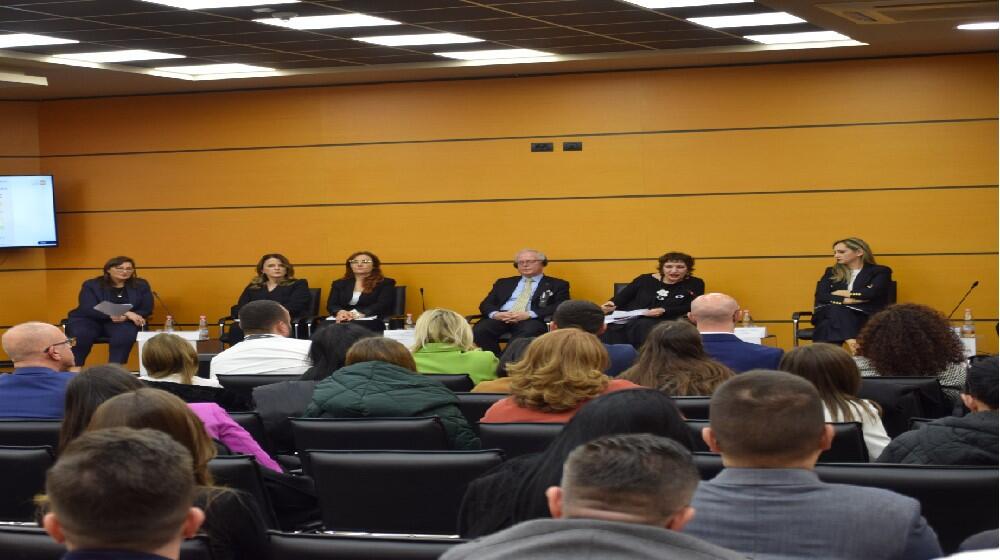For the first time in the last decade, Albania organized the Health Congress. Policymakers, public health institutions representatives, health professionals, and international organizations representatives came together to discuss achievements, gaps and challenges in improving health services in Albania.
UNFPA is one of the main actors and contributors to the improvement of the health sector in the country. During the Health Congress, UNFPA presented the work in collaboration with public health institutions, experts and civil society organizations, aiming to address priorities related to sexual and reproductive health, in particular and public health, in general from a demographic resilience perspective.
The participation and interaction of authorities and participants from various health institutions promoted cooperation to address future challenges for qualitative and comprehensive services, focusing on achieving Universal Health Coverage.
Developing local action plans to address the challenges of the dynamic demographic changes in a world of 8 billion people is one way of UNFPA’s direct work at local level. UNFPA Gender and Population Development Programme Analyst, Elsona Agolli, presented the impact such changes have on older persons and other marginalized groups in the country, and ways and some solutions on how to get prepared and address them. “This Health Congress discussions are well in line with UNFPA’s work and interventions at strategic level, at capacity building level of public health service providers, and at data generation and analysis level. For UNFPA, but also for all participants, part of the congress, raising awareness and information sharing among the population groups to meet the needs for integrated health services for the 65+ age group, aiming to achieve the objective that no one is left behind, remains very important”, said Ms. Agolli.
Youth and sexual and reproductive health are two other key pillars of UNFPA’s engagement in the country through cooperation with public institutions and organizations. For Dorina Toçaj, Sexual & Reproductive Health and Youth Programme Analyst at UNFPA, health and well-being is not only lack of diseases, but it is a complete emotional, physical and psychological fulfillment of the individual. “Our joint work in the following years must be focused on informing and raising awareness to increase young people’s access to public health care services. These days we still face unequal gender norms. Challenge should make us understand and act to make our young people’s potential become fulfilled also through ensuring a healthy state of their sexual and reproductive health and well-being”, said Ms. Toçaj.
For UNFPA these challenges have an impact not only on the well-being of young people but also on the economic development and poverty reduction, so efforts to provide health services for the most vulnerable and hard-to-reach groups must be strengthened. Work on the ground with young people remains important for UNFPA to address structural barriers that youth face in using and accessing public health services.
UNFPA remains committed to work with these marginalized groups, not only to improve health services, but also to improve access and quality of the services provided to these groups.


